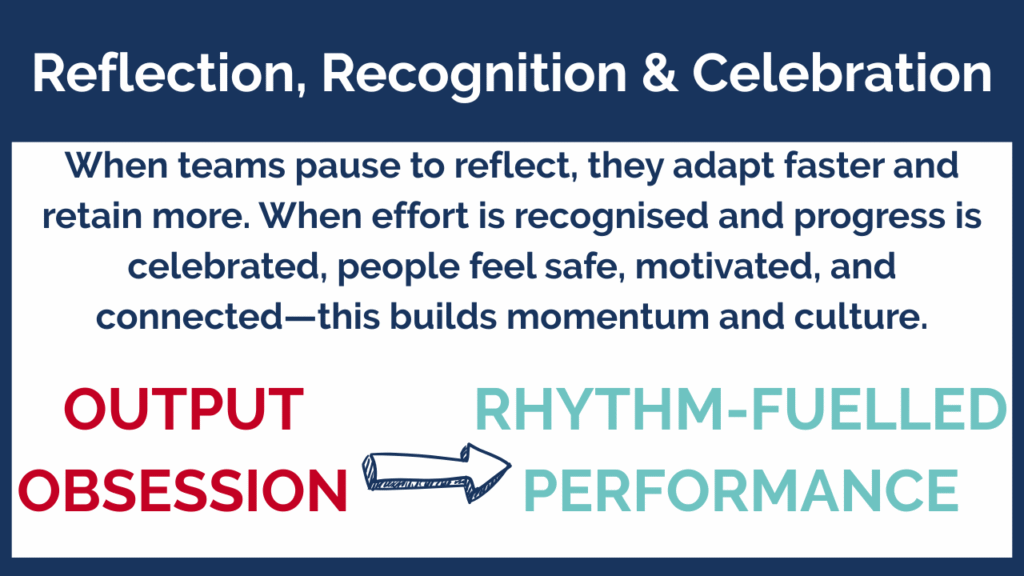
This week is about shifting from getting through the work to building rhythm and recognition around the work.
We’re focusing on three leadership habits that lift performance, deepen trust, and shape team culture:
Reflection. Recognition. Celebration.
These aren’t extras. They’re essential.
🧠 The neuroscience is clear:
When leaders consistently reflect, recognise, and celebrate, they don’t just drive results—they create cultures of meaning, motivation, and momentum.
“Reflection builds learning.
Recognition builds confidence.
Celebration builds connection.”
Culture isn’t built in strategy documents—it’s built in what you choose to notice, name, and amplify.
This week, you’ll learn how to do that with rhythm and intention.
From output obsession to rhythm-fuelled performance
🧠 Neuroscience Insight: When teams pause to reflect, they adapt faster and retain more. When effort is recognised and progress is celebrated, people feel safe, motivated, and connected—this builds momentum and culture.
🧭 Shifting from grind to growth
💬 Naming what’s working—so it sticks
🎉 Making reflection, recognition, and celebration visible, repeatable, and real
It’s about learning to give and receive feedback that helps people grow—and using it as a way to build trust, not break it.

Choose one team member and follow this 3-part rhythm:

Introduce a recurring Reflection + Recognition ritual to your team:
Frame it like this:
“Let’s make reflection, recognition, and celebration part of how we work—not just something we do at the end.”
Bonus: If you ran a Growth Conversation last week, build on it—recognise progress and celebrate the stretch.
In this engaging talk, Mike Robbins explores the distinction between recognition and appreciation, emphasising how genuine appreciation can enhance workplace relationships and productivity. He draws on research from positive psychology to illustrate the profound impact of appreciation on individuals and teams.
This concise video explains the neuroscience behind employee recognition, highlighting how acknowledging employees’ efforts triggers positive behavioural changes and drives engagement. It offers practical insights into creating a culture of recognition that motivates and retains talent.
This reflection helps track your shift from reactive to ritualised leadership—and how that’s experienced by others.